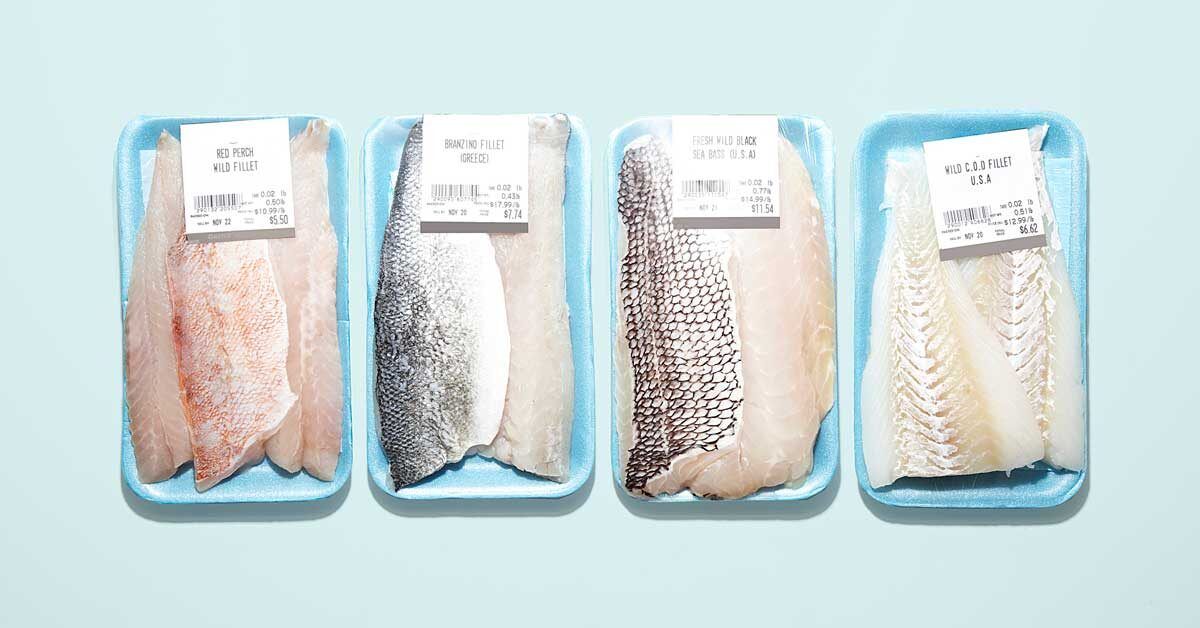Congestive heart failure (CHF) is a serious medical condition in which the heart doesn’t pump blood as well as it should. Conditions such as high blood pressure and coronary artery disease can lead to CHF.
What you eat can have a big impact on your heart health, whether you are trying to prevent CHF or live healthier with it. Heart-healthy dietary choices include eating foods that are low in sodium, saturated fat, trans fat, and added sugars.
123object / Getty Images
This article will discuss diets for congestive heart failure and tips for shopping, cooking, and eating out, as well as what foods and beverages are included as part of a heart-healthy diet.
Terms to Know
Some definitions will help:
- Cholesterol: This waxy, fatlike substance is found in the cells of your body. It helps your body build cell membranes, vitamin D, and hormones, but too much can be bad for your heart health. Animal sources such as red meats, poultry, eggs, and dairy products add cholesterol to the diet.
- Carbohydrates: Carbs are essential macronutrients that are converted into glucose in the body and provide energy to function. Starches, sugars, and fiber are all carbohydrates.
- Saturated fat: This type of dietary fat is most often solid at room temperature. Foods like butter, palm and coconut oils, cheese, and red meat are high in saturated fat.
- Trans fat: This harmful dietary fat is composed of partially hydrogenated oils, made when liquid oils are converted to a fat that is semisolid at room temperature. Highly processed foods like cookies, cakes, crackers, frozen meals, ready-made frostings, refrigerated doughs, vegetable shortening, stick margarine, and fast food might contain trans fats.
- Unsaturated fat: This type of dietary fat is most often liquid at room temperature. There are two categories—monounsaturated fats and polyunsaturated fats. Fatty fish, nuts, seeds, olives, avocados, and vegetable oils contain unsaturated fat.
Benefits
A common theme among dietary patterns that have proven to be most beneficial in reducing the risk of heart failure or improving outcomes after heart failure is a plant-forward, low-sodium eating pattern.
The Mediterranean diet and the Dietary Approaches to Stop Hypertension (DASH) diet are two eating patterns that have been frequently studied in the prevention and treatment of CHF.
A 2018 review of studies found that both the Mediterranean and DASH diets helped protect against heart failure and/or worsening of heart function compared with people who did not follow these dietary patterns.
Another 2018 review found similar results, concluding that healthful eating patterns, particularly those focusing on plant foods, such as the Mediterranean and DASH diets, may offer some protection against the development of heart failure.
In addition to a plant-forward diet, the study found that decreased sodium intake helped prevent high blood pressure, stroke, and cardiovascular disease. With the strong link between high blood pressure and risk for CHF, it is safe to assume that decreased sodium intake is also protective against CHF.
Nevertheless, the researchers of this study noted that the role of sodium restriction in people with established CHF is not well defined.
Addressing this same concern, a 2020 review looking at the role of diet and nutrition in heart failure also found mixed results on sodium restriction in people with current CHF. Some studies they reviewed found a beneficial effect of decreased sodium intake, while others resulted in worsening symptoms.
However, it is important to note that there may be confounding variables that affect the results. Factors such as the extent of sodium restriction, the stage of heart failure, fluid restrictions, medications, and other comorbidities (conditions the person has) may all play a role in whether sodium restriction is beneficial or not.
Looking at overall dietary patterns’ effect on outcomes in people with existing CHF, the same review study found that both the Mediterranean and DASH diets show great promise in their ability to improve secondary outcomes in heart failure.
How It Works
Heart-healthy diets like the Mediterranean diet and DASH diet share many similar characteristics. Both eating patterns emphasize fruits, vegetables, whole grains, and legumes while limiting saturated fats.
The DASH diet also emphasizes decreased sodium and total fat intake, while at the same time promoting high potassium intake. The Mediterranean diet puts an emphasis on unsaturated fats from foods such as fatty fish, extra virgin olive oil, canola oil, and nuts.
Duration
Diets for congestive heart failure, including the Mediterranean diet and DASH diet, are not meant to be a temporary diet but rather a lifestyle.
Eating to prevent or treat CHF may require some changes to habits at first, but the goal is to make them a permanent change to help your heart perform and function at its best for the rest of your life.
What to Eat
-
Red meats
-
Processed meats
-
Added sugars
-
Salt and high-sodium foods
-
Highly processed foods
-
Foods high in saturated fat
-
Foods with trans fat
-
Alcohol
-
Large amounts of fluid (with current CHF, depending on doctor recommendations)
Foods to Encourage
Foods you should focus on enjoying include:
- Fruits and vegetables: Fruits and vegetables provide a variety of vitamins and minerals, as well as dietary fiber, which can help decrease the risk of cardiovascular (heart) disease and obesity. Include a variety of different-colored fruits and vegetables as the base of your diet.
- Whole grains: Whole grains like brown rice, oats, barley, corn, rye, buckwheat, and whole-wheat bread, pasta, and tortillas contain vitamins, minerals, and fiber that can help keep your heart healthy and improve your cholesterol.
- Legumes, nuts, and seeds: Many nuts and seeds contain healthy unsaturated fats, fiber, vitamin E, and other antioxidants and anti-inflammatory compounds that may help manage cholesterol and blood pressure.
- Lean protein: Fatty fish and lean cuts of poultry are sources of lean protein, which are lower in saturated fat. Salmon, tuna, sardines, trout, chicken breast without the skin, and white turkey meat are all good choices.
- Eggs: An excellent breakfast choice, eggs are high in protein, as well as other nutrients like selenium, choline, iron, lutein, folate, and vitamins A, D, E, and B12. Recent research confirms that when eaten as part of a healthy diet, eggs do not increase the risk of heart disease.
- Dairy: Low to moderate amounts of dairy products are part of the Mediterranean and DASH diets, including cheese, yogurt, cottage cheese, and milk.
- Vegetable oils: Vegetable oils like olive, avocado, and canola oil are higher in healthy unsaturated fats and can be included as part of a heart-healthy diet.
- Herbs and spices: Instead of using salt, choose from a variety of herbs and spices to add flavor to your meals.
Foods to Limit or Avoid
Look for ways to reduce these foods in your diet:
- Red meats and processed meats: Red and processed meats are higher in saturated fats. The Mediterranean and DASH diets recommend eating them only sparingly.
- Added sugars: Added sugars, such as those found in desserts, baked goods, jams, candy, sugar-sweetened beverages, and more, add calories with very little nutritional value. It’s best to limit the amount of added sugars you consume daily.
- Salt and high-sodium foods: Salt and sodium are one of the main dietary factors that raise blood pressure. Therefore, it’s recommended to choose lower-sodium or no-salt-added varieties of foods purchased at the grocery store.
- Foods high in saturated fat and trans fat: Foods such as butter, palm oil, and coconut oil, shortenings, stick margarine, and highly processed foods often contribute a significant amount of saturated and/or trans fats to the diet.
- Alcohol: The DASH diet recommends drinking alcohol sparingly, not to exceed one drink per day for women and two for men. The Mediterranean diet does allow for a daily glass of wine (especially red wine) with dinner. However, if you currently do not drink alcohol, it is not suggested to start drinking for this purpose only.
- Large amount of fluids: In CHF, there is often fluid buildup in your body, making it harder for your heart to work as well as it should. Restricting sodium intake and the amount of fluids you take in may be necessary. Work with your healthcare professional to determine if and how much you should restrict your fluid intake.
Recommended Timing
There is no specific recommended amount of meals per day or timing of meals for a heart-healthy diet. Nevertheless, in general, meals should be spread evenly throughout the day.
This could look like three meals a day with a snack or two in between, or five to six smaller meals daily. Find an eating pattern that works best for you and be consistent with it.
Considerations and Practical Advice
To get started, these tips may help.
Eating Out
When you are dining away from home:
- Put the saltshaker out of sight.
- Don’t be afraid to ask for substitutions, such as steamed veggies instead of mashed potatoes and gravy, or a side salad instead of french fries.
- Order sauces and dressings on the side.
- Ask that no salt be added to your meal.
- Look up or ask for nutrition information before ordering, and select a lower-sodium and lower-fat option.
- Ask for water instead of soda when asked for your drink of choice.
At the Grocery Store
When you shop for food:
- Look for “reduced sodium,” “low sodium,” or “no salt added” varieties of canned and prepackaged foods.
- When buying frozen vegetables, choose those without added sauces or salt.
- Read and compare food labels, looking at the amount of sodium in different products. Choose the options with the lowest amounts of sodium and saturated fat.
- When possible, choose fresh poultry, fish, and lean meats without a saline or salt solution added, rather than cured, salted, smoked, and other processed meats.
Decoding Nutrient Content Claims
There are many terms on food labels that can be confusing. Below are some nutrient content claims you may come across when looking to eat in a more heart-healthy way, along with what they mean:
- Low sodium: Contains 140 milligrams (mg) or less of sodium per serving
- Very low sodium: Contains 35 mg or less of sodium per serving
- Salt/sodium-free: Contains less than 5 mg of sodium per serving
- No salt added: No sodium was added to the food. However, the food may still naturally contain sodium.
- Reduced sodium: Contains at least 25% less sodium than what the food normally has
- Light in sodium or lightly salted: Contains at least 50% less sodium than what the food normally has
- Low fat: Contains 3 grams (g) of fat or less than what the food normally has and not more than 30% of calories from fat
- Reduced/less fat: Contains at least 25% less fat than what the food normally has
- Fat-free: Contains less than 0.5 g of fat per serving
Cooking and Eating at Home
When preparing food and eating at home:
- Instead of cooking vegetables in butter, try boiling, steaming, roasting, or lightly sautéing with olive oil.
- When cooking poultry and fish, baking, broiling, stir-frying, sautéing, or grilling are preferred over deep-frying.
- Take the saltshaker off the table, as even a little “shake” can add a lot of sodium to your meal. Infuse flavor into your meals with herbs, spices, garlic, onion, and citrus zest and juices.
- Feel free to adjust recipes to accommodate your diet. This includes adding less salt than is called for, swapping out butter for a healthier fat, such as olive oil, or using whole grains instead of refined grains.
- If possible, cook from scratch or semi-scratch. This will help you decrease the prepackaged foods you use, which are typically high in sodium, fat, and/or added sugars.
- Choose fruit in place of a traditional dessert for a sweet way to end your meal.
Dietary Restrictions and Modifications
The Mediterranean diet and DASH diet are considered healthy for most populations. However, some modifications may need to be made for people with certain health conditions, such as celiac disease, or who choose to follow a vegetarian or vegan diet.
One study looked at the DASH diet in relation to special populations. The study authors recognized that the DASH diet is a healthy eating pattern for most people.
However, they recommended that people with chronic liver or kidney disease and those who are prescribed renin-angiotensin-aldosterone system (RAAS) antagonist medication talk with their healthcare professional before starting the diet. RAAS antagonists include Vasotec (enalapril), Prinivil (lisinopril), Altace (ramipril), captopril, and Lotensin (benazepril).
In addition, the researchers also noted that people with uncontrolled type 2 diabetes, lactose intolerance, and celiac disease may need to make modifications when following the DASH diet.
It’s important to work with your healthcare professional before making any big changes to your diet. They will help you look at individual potential health benefits of the diet, as well as possible side effects.
They may also be able to refer you to a registered dietitian or another professional who can provide education, guidance, and support if you require additional dietary restrictions or modifications.
Mediterranean vs. Keto Diet
The Mediterranean diet is a plant-forward diet and is considered safe for most people. If you have any medical conditions, you should talk with your healthcare professional before making major dietary changes, including the Mediterranean diet.
With numerous studies investigating the health effects of the Mediterranean diet, it has been generally regarded as a heart-healthy eating pattern.
The keto diet is a high-fat, very-low-carbohydrate diet. Diets high in fat may pose risks for heart health. If you have certain medical conditions, such as liver or kidney disease, the keto diet may not be safe. Whether or not people with diabetes, especially those taking insulin, should follow a keto diet remains controversial.
How the keto diet affects HDL and LDL cholesterol, triglycerides, and overall heart health is still being researched. Most studies on the connection have been short-term and have reached a variety of conclusions. The long-term effects of the keto diet on heart health remain unclear.
One major factor that affects cholesterol and, therefore, heart health outcomes is the type of fats consumed, with unsaturated fats being preferred over saturated and trans fats. If you are choosing to follow a keto diet, your healthcare professional may recommend regularly checking your cholesterol levels to ensure LDL (or “bad” cholesterol) levels do not become too high.
Summary
Congestive heart failure (CHF) is a serious medical condition in which the heart doesn’t pump blood as well as it should. Whether you are trying to prevent CHF or live healthier with it, you may benefit from changing your diet to follow a more heart-healthy eating pattern.
Popular science-based diets for CHF include the Mediterranean diet and the DASH diet, with many studies supporting their benefits for heart health. The keto diet remains controversial. Choosing foods and beverages that are low in sodium, saturated fat, trans fat, and added sugars is recommended as part of an overall heart-healthy diet.
A Word From Verywell
Preventing or managing CHF may involve many dietary and lifestyle changes. Making a heart-healthy diet a lifelong way of eating requires commitment and discipline, though the benefits that come from following it are many.
Having a support person or partner who is also following a heart-healthy diet may make it easier for you. Choose one or two habits to work on at a time, as small changes over time can add up to big results in the long run.

/saladprep_GettyImages-836430946-6a124e5e2b6f412393c5a4a967c2f7cb.jpeg)


:max_bytes(150000):strip_icc()/ChickenBreast-7c055ca42ace4670867b52b9ab642824.jpg)






